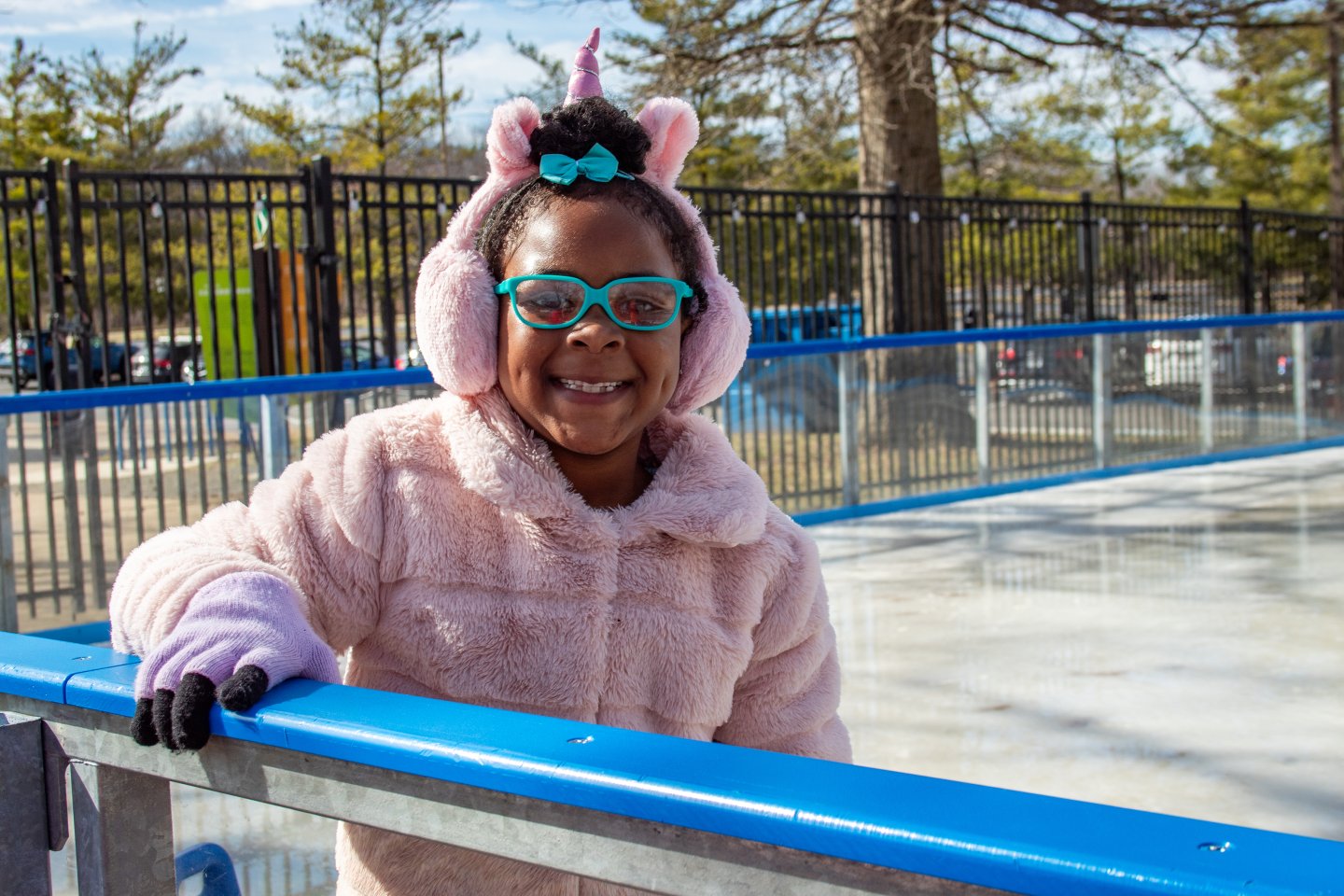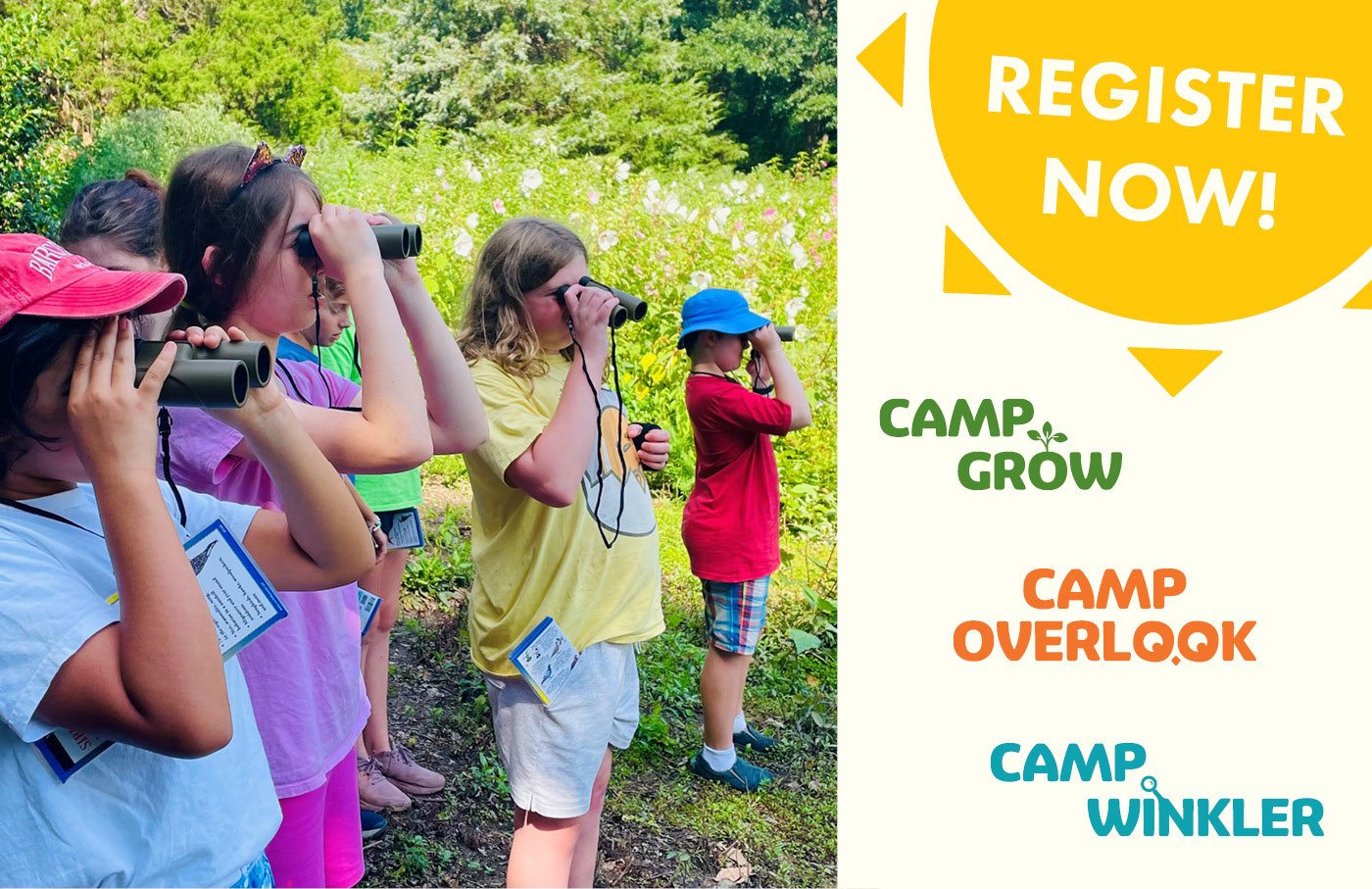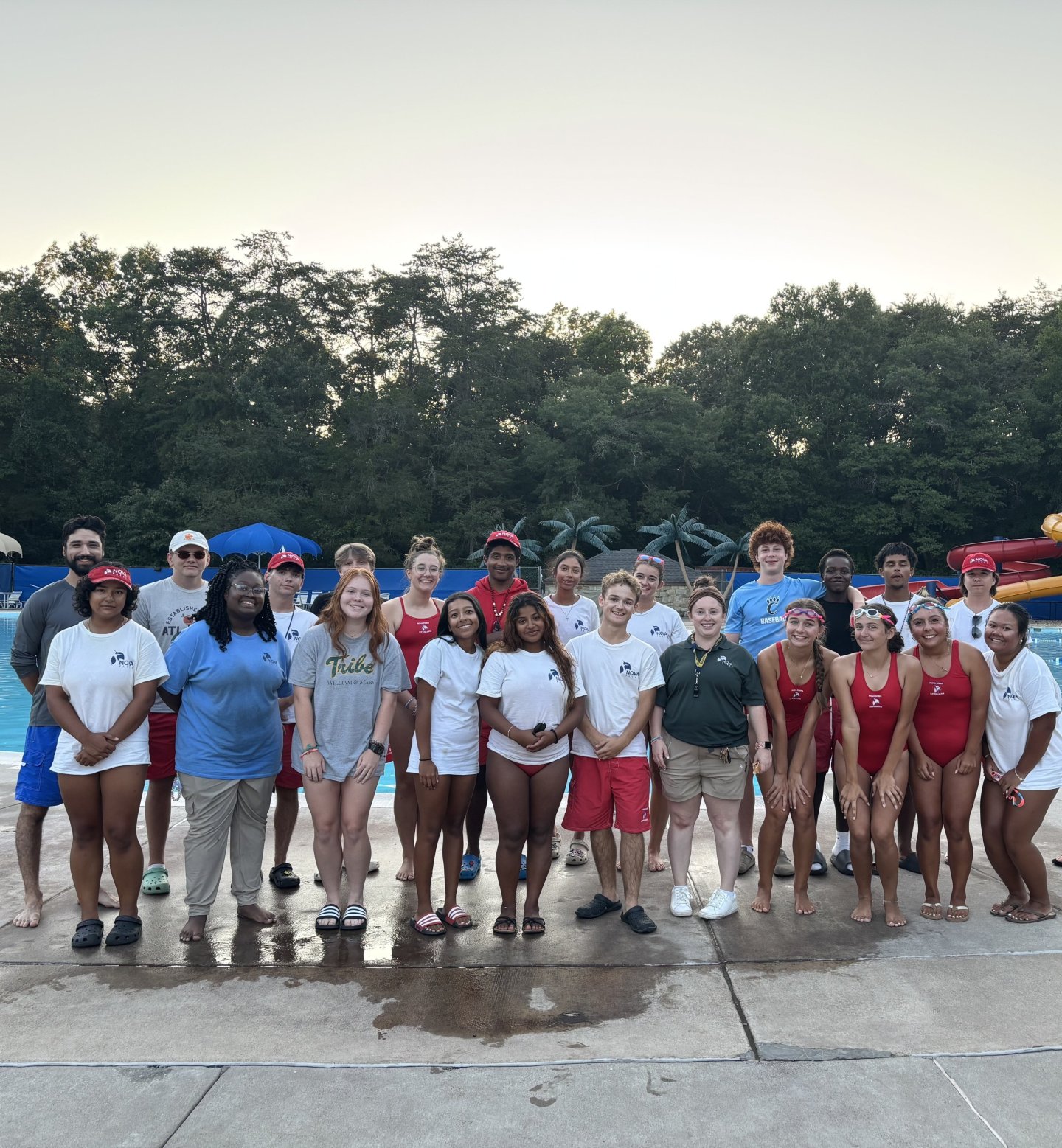Potomac Overlook Regional Park
Interpretive Gardens
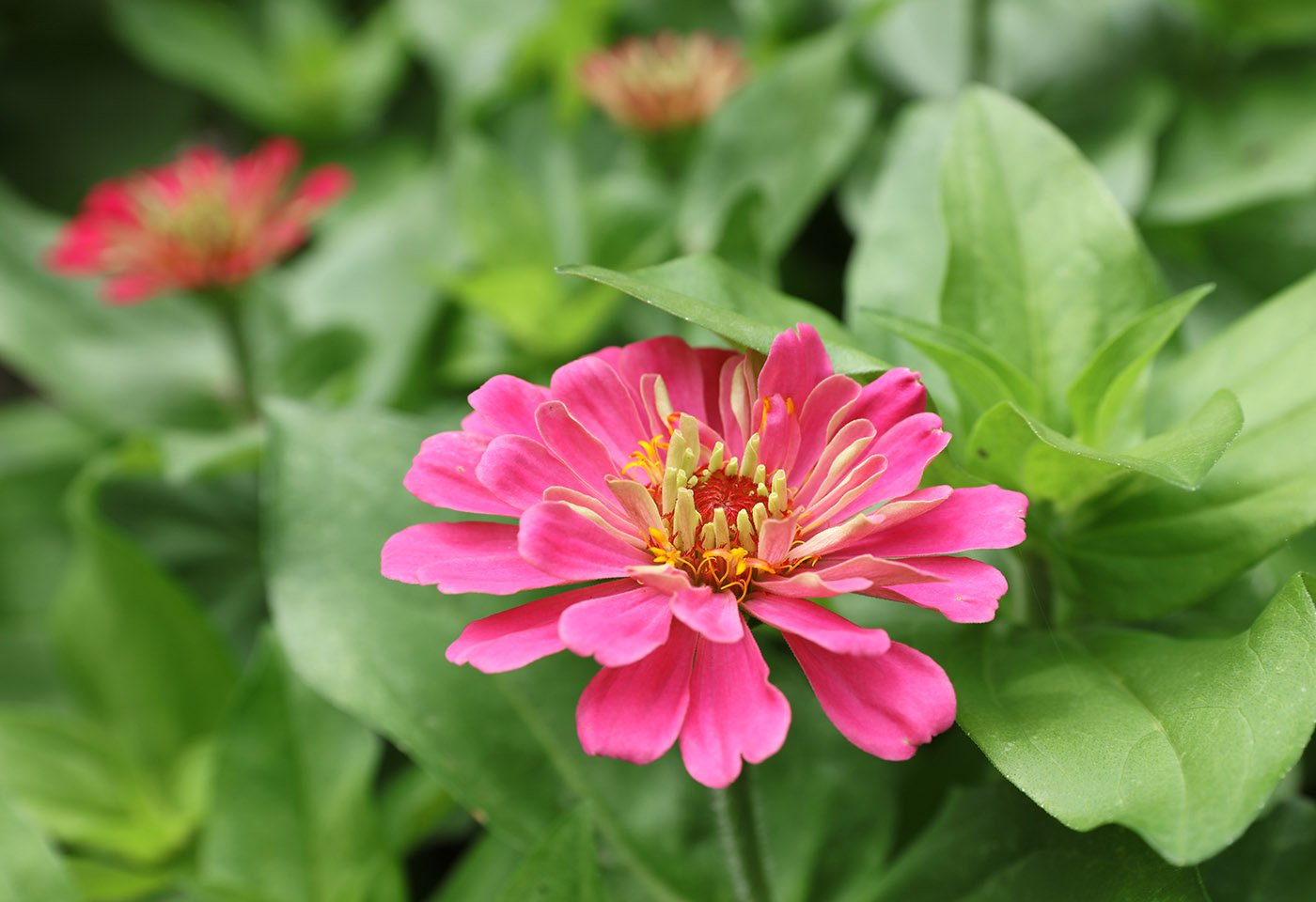
Potomac Overlook Regional Park enjoys successful collaborations with the Master Gardeners of Northern Virginia, the Arlington Regional Master Naturalists, and local Girl Scout Troops to maintain interpretive gardens that patrons can visit. The park’s many environmental and cultural activities draw people to the gardens, as do school field trips and summer nature camps. The interpretive gardens are open year-round from dawn to dusk.
Master Gardeners Demonstration Site
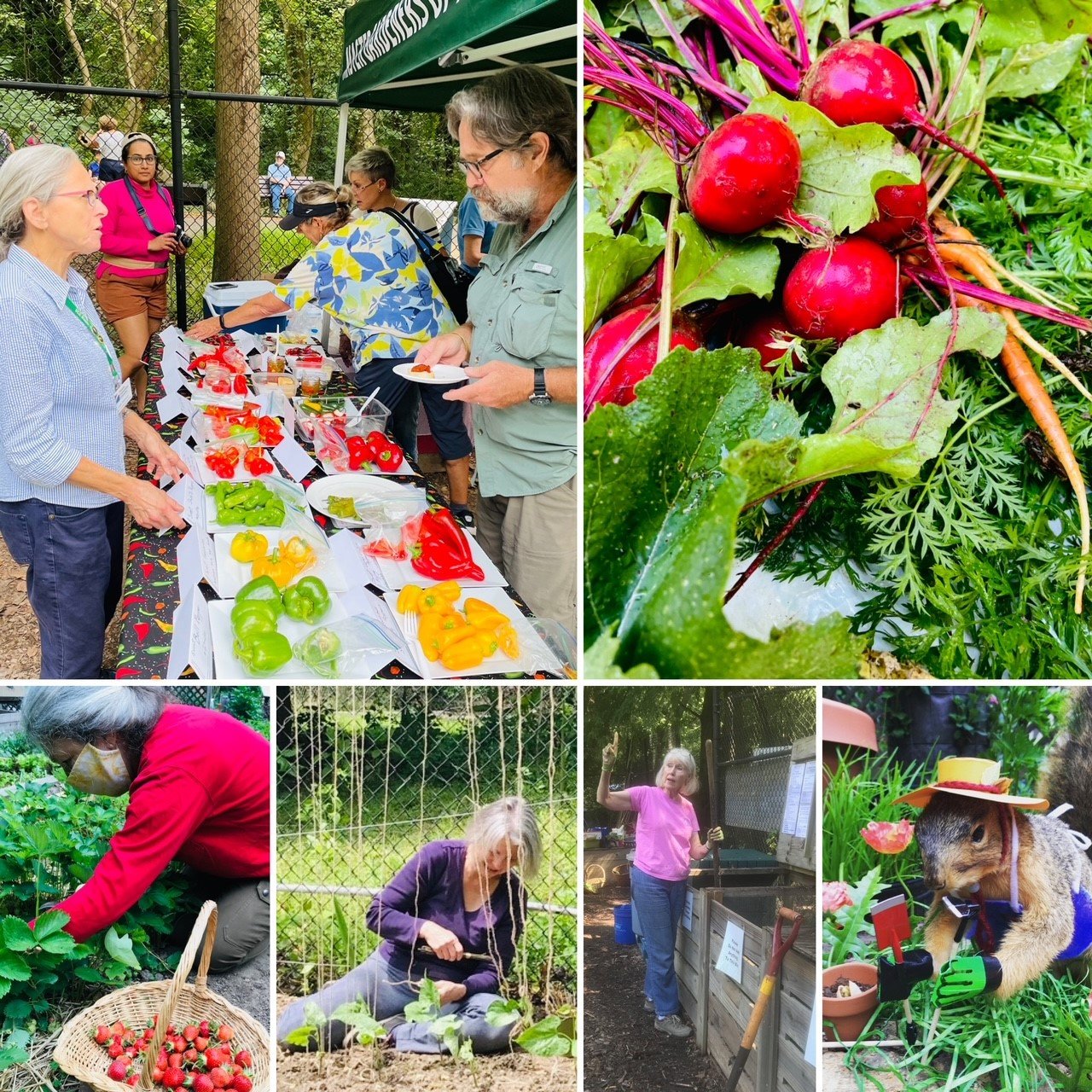
The focus of the Master Gardeners' demonstration site, begun in 2000, is organic, urban vegetable gardening. An on-site water system, (including a rain barrel) and 10-feet high “wildlife exclusion” fence all support an active gardening program. Learn more about gardening and the Master Gardeners of Northern Virginia, at www.mgnv.org.
Master Naturalist Gardens

Similarly, the Master Naturalists show hardy native perennials and woody plants that do well in Northern Virginia and tolerate deer. Their garden rooms, installed in 2011 with a grant from Audubon Society of Northern Virginia, host both shady and sun-loving plants with value for restoring habitat to support native birds, bees, butterflies, and other insects. Learn more about native plants at www.plantnovanatives.org and about the Master Naturalist program at www.armn.org.
Girl Scout Native Garden
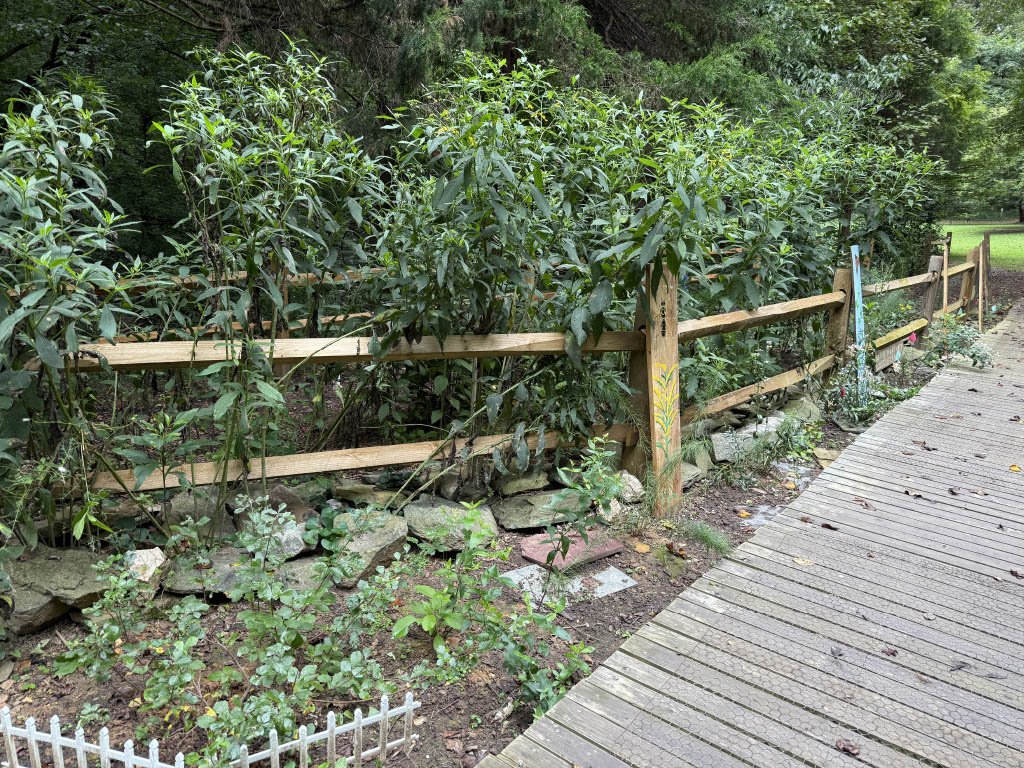
The native plant and pollinator garden, completed in 2025 as a Girl Scout Gold Award project, is a 300 square foot garden designed to educate all of the park’s visitors on the importance of native plants. Located along the boardwalk, between the music stage and the nature center, the Gold Award-winning native plant garden, along with its new fencing, provides a habitat for pollinators. This area supports native animals across the food chain, helping to replace the loss of habitat throughout Arlington.
The artwork, painted by local teen artists, depicts pollinators and their preferred plants, aiming to inspire visitors to plant native species in their own gardens.
In addition, workshops were held for Girl Scout troops and Camp Overlook campers to educate participants about native plants and pollinators.
Native plants used in the garden include grow-low sumac, obedient plant, green and gold, black-eyed susan, amsonia, joe pye weed, penstemon, iron weed, milkweed, bee balm, mountain mint, asters, and coneflowers.
Why do Native Plants Matter?
Planting native species increases biodiversity and prevents the spread of non-native species. Native species help maintain ecosystem stability by providing essential resources for pollinators which supports plant reproduction and provides food for humans.
According to the U.S. Forest Service, all land animals, including humans, rely on pollinators for survival. Most flowering plants depend on pollinators to reproduce, and 80% of our food comes from these plants.
Unfortunately, human activities like construction, pesticides use, monoculture lawns, and the spread of invasive species are contributing to the loss of native habitats. Urbanization leads to habitat fragmentation, soil changes, and increased competition for native species. Invasive species disrupt local habitats, making it difficult for native organisms to thrive, which ultimately affects the entire ecosystem and food chain.
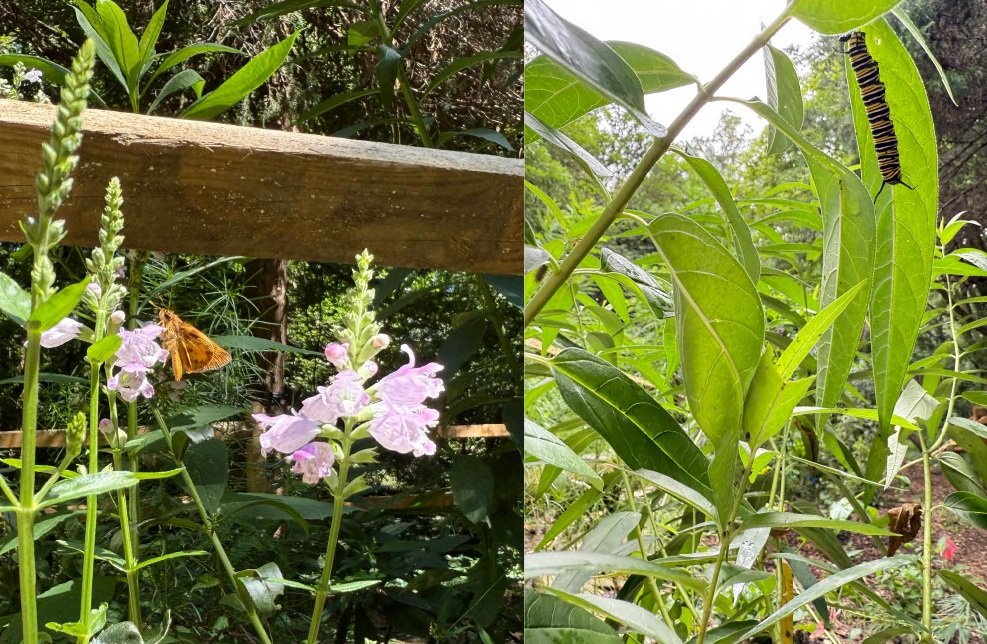
What Can You Do?
It is essential to support the health of pollinators and native plants. Pollinators ensure that humans have the food we need to survive, while native plants provide pollinators with the resources they depend on. You can help by growing native plants in your garden and by removing invasive species.
One effective way to increase pollinator presence is by planting their host plants. Pollinators require specific plants for feeding and laying eggs. By offering these plants, native gardens like this one can play a vital role in supporting the ecosystem.
When we provide pollinators the resources they need to thrive, in turn, they help provide us with the resources we need to thrive. See the resources below for additional information.
Resources
"Are Our Laws Biological Deserts?" — U.S. National Science Foundation
"Milkweed for Monarchs," — National Wildlife Federation
"Native Plants," — Arlington VA
"Population and Employment Forecasts," — Arlington VA
"Urbanization, Habitat Loss, and Biodiversity Decline" — Routledge, Taylor & Francis Group
